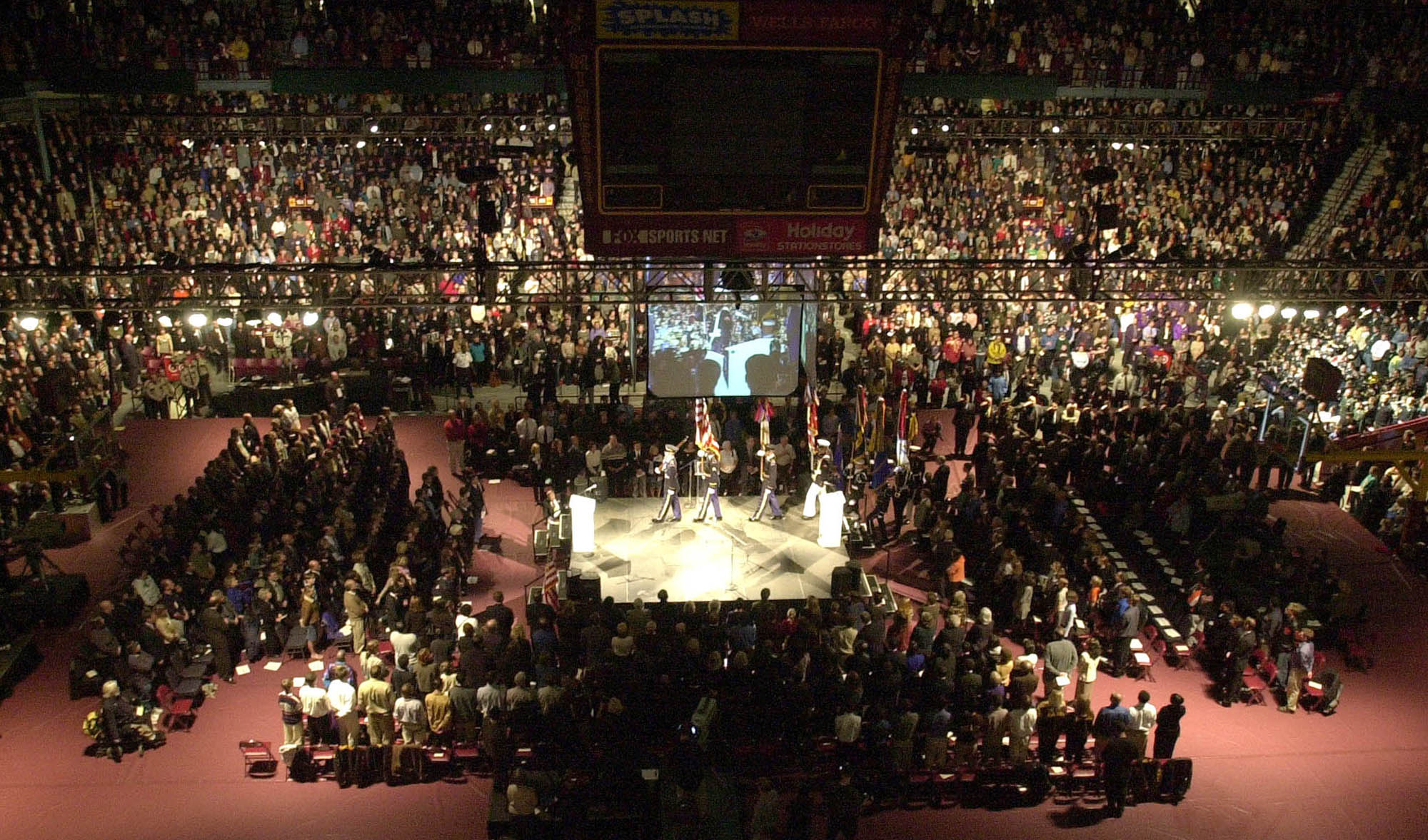Many people once viewed politics merely as a form entertainment. We could all collectively laugh at the likes of Edwin Edwards even if he was notoriously corrupt. Many folks in Louisiana embraced the former governor for his antics and not merely for his ability to fix every problem in the state. I’m certainly not defending Edwards’s criminal past, but now we look to every politician to solve society’s problems, as if politics could. Because politics is now life and death for so many, it has become too serious for entertainers.
Now the deaths of famous people like Robin Williams are routinely politicized. You’ve probably seen this if you pay attention to social media, 24 hour news shows, or talk radio. Over a decade ago, the Paul Wellstone funeral turned into partisan pep rally for rigid collectivism and electoral success. Politics is everywhere and now in everything. It’s saturated in sports, education, the military, the weather, and history, to just name a few. My own alma mater, The University of Mississippi, is looking to shed its well known and affectionate nickname “Ole Miss” because it could be perceived as politically incorrect.
Now that death is becoming more and more politicized, it’s a powerful reminder of the surge of secularism in society. Death needs to be politicized to give death meaning given that politics is becoming all consuming and the pinnacle of life for so many. Politicizing death expresses, perhaps unbeknown to those guilty of it, this sentiment that there is little or nothing of worth beyond this world. More important to them is the here and now and attempting the impossible, fixing society through politics.
Bernard Crick, the British political theorist, declared, “When everything is seen as relevant to politics, than politics has in fact become totalitarian.” There is little doubt that America is moving in this direction. This is why the American Founders sought to limit the political control over the citizens. They saw the purpose of government to protect the natural rights of citizens, elevating the citizen above politics. It was Alexis de Tocqueville who asked, “How is it possible that society should escape destruction if the moral tie is not strengthened in proportion as the political tie is relaxed?” Preserving liberty allows for human flourishing, contracting liberty reduces man to the material and morphs him into a piece to be moved on a political chess board. Now, as citizens, we find ourselves subservient to the political order.
Those politicizing death are trying to act like gods. It points to the attempt to elevate politics above the Creator. The politicization of our culture and death is the fault of the Church in America too. The Church needs to be more bold in its declaration that they have the only answer to death and in offering the hope that overcomes death.
